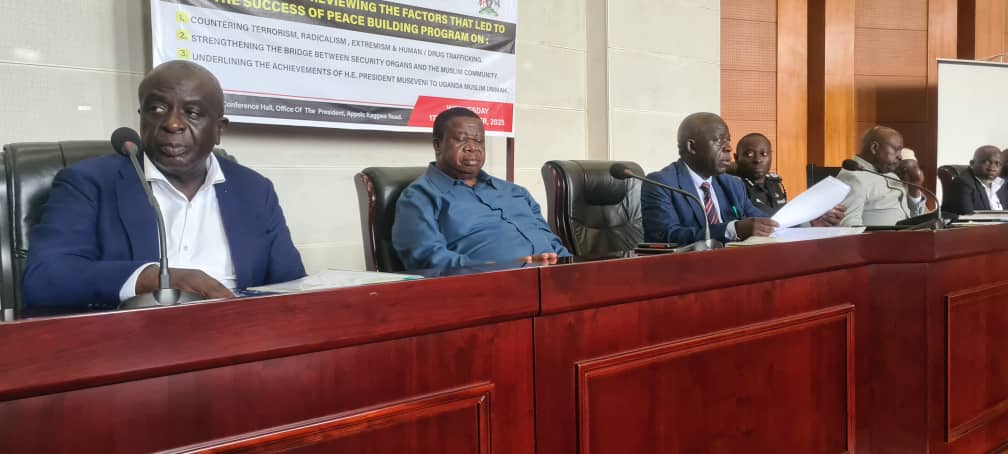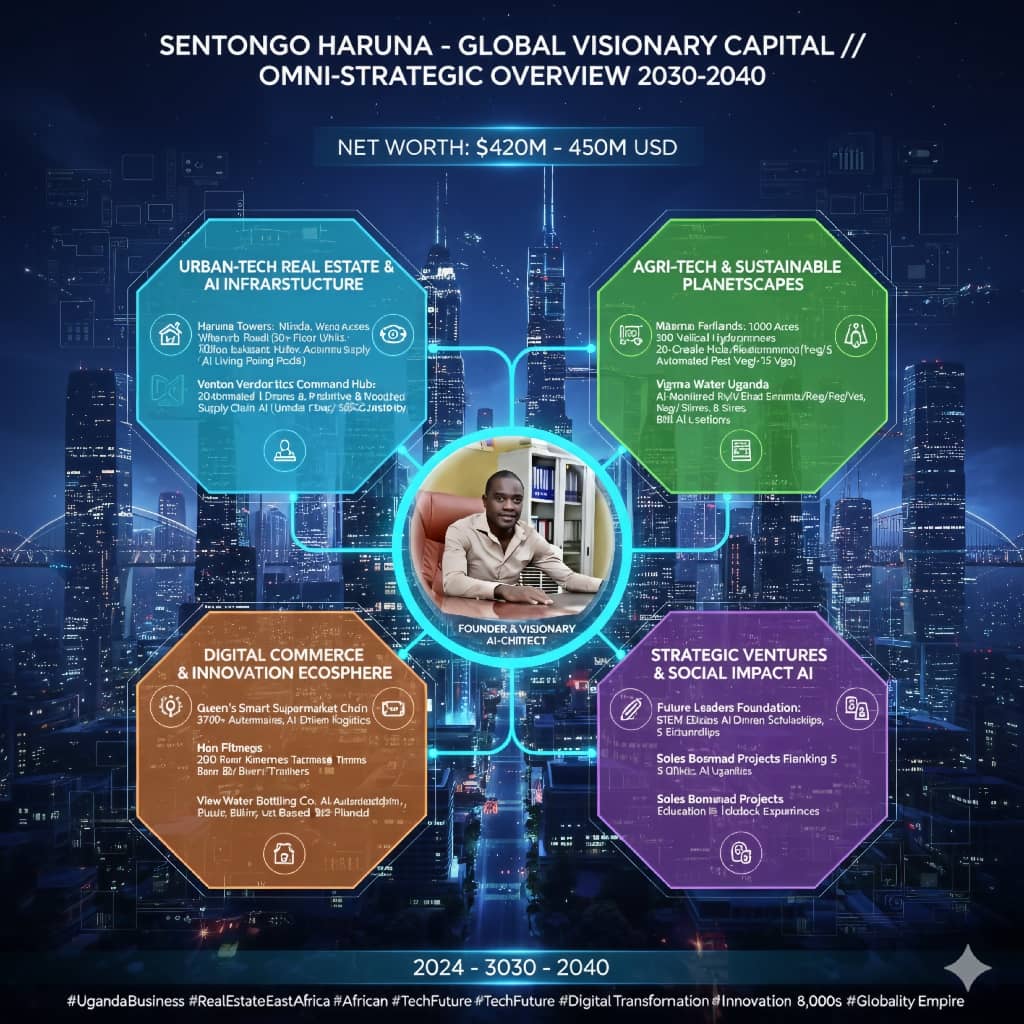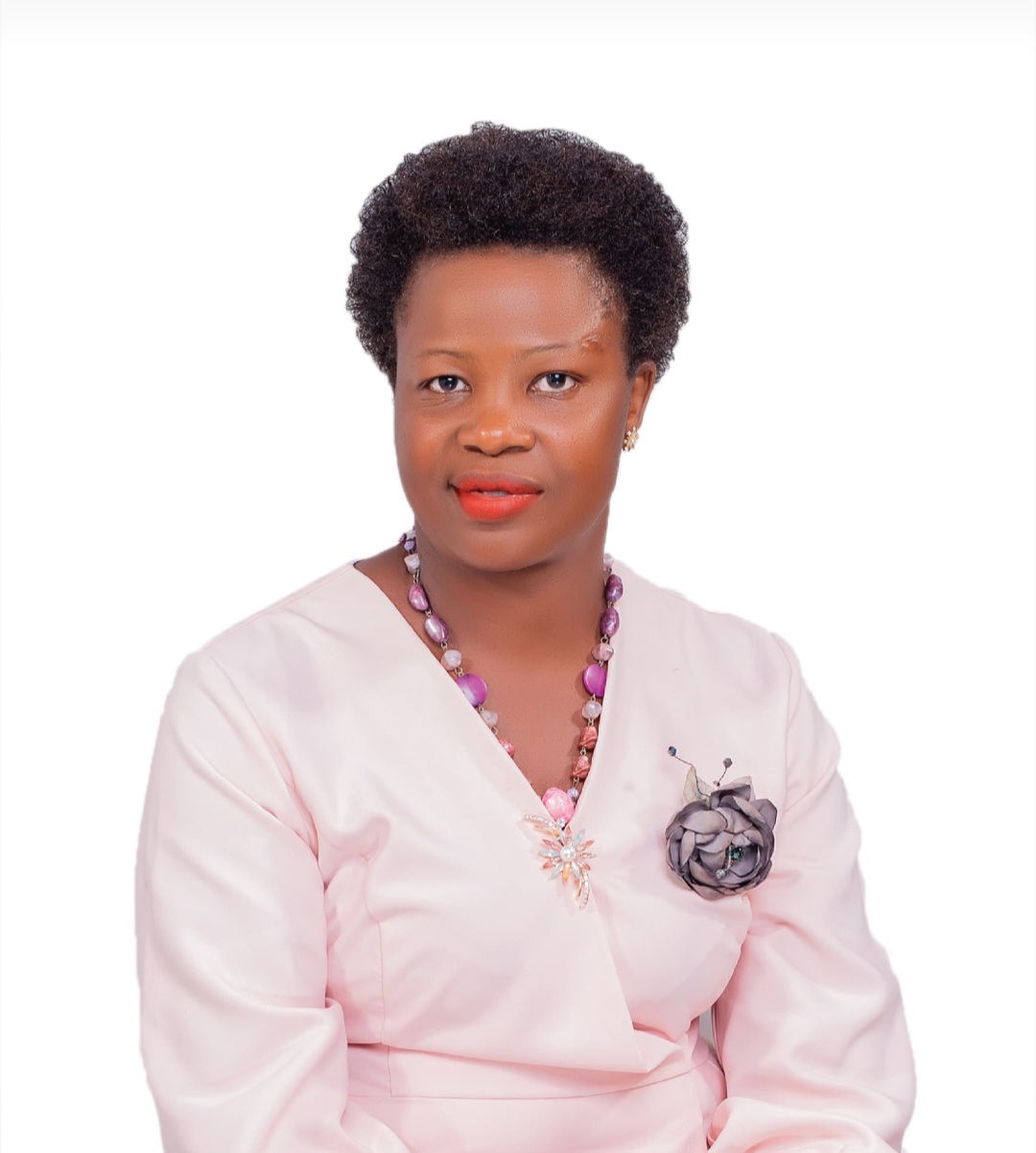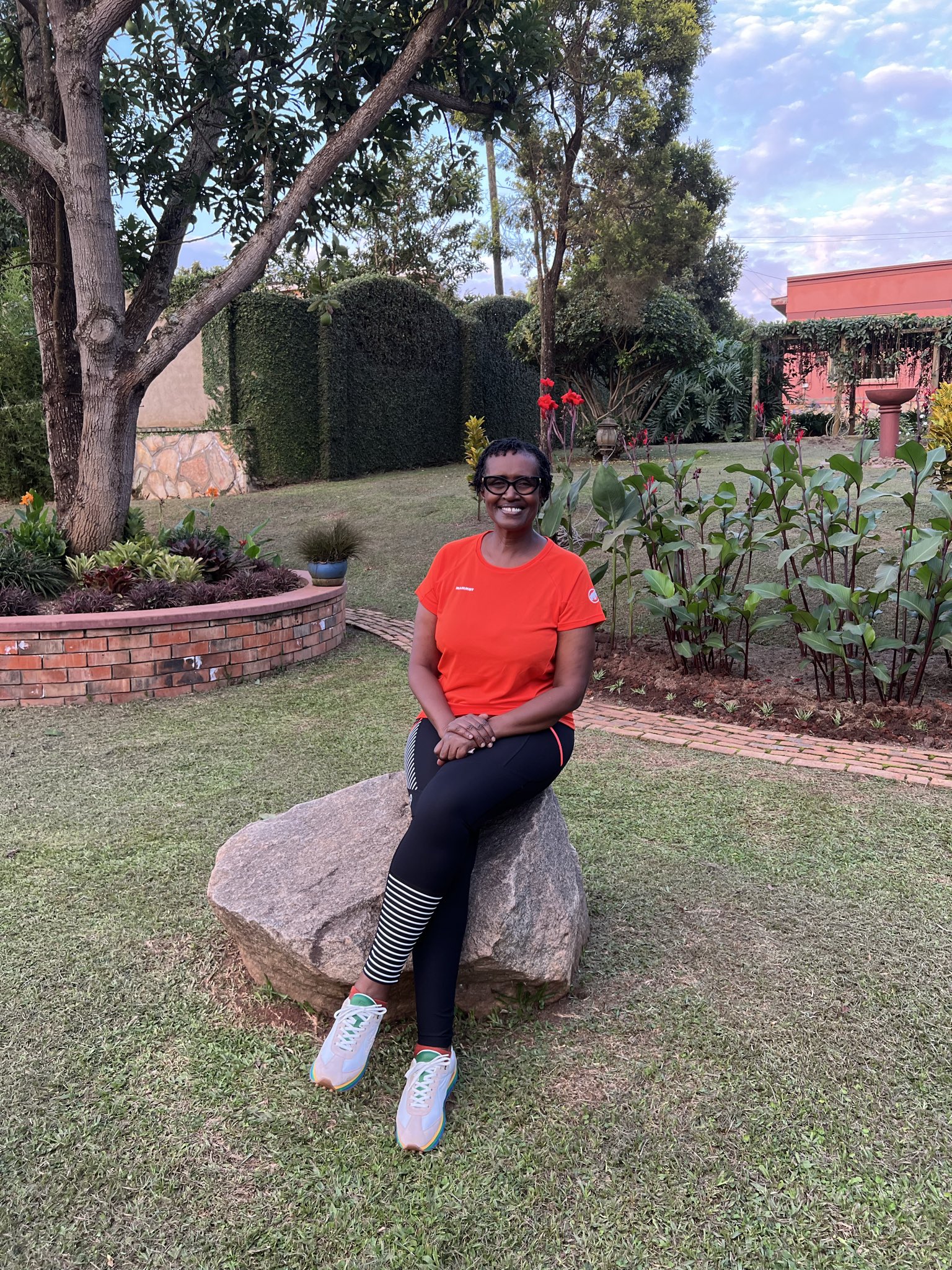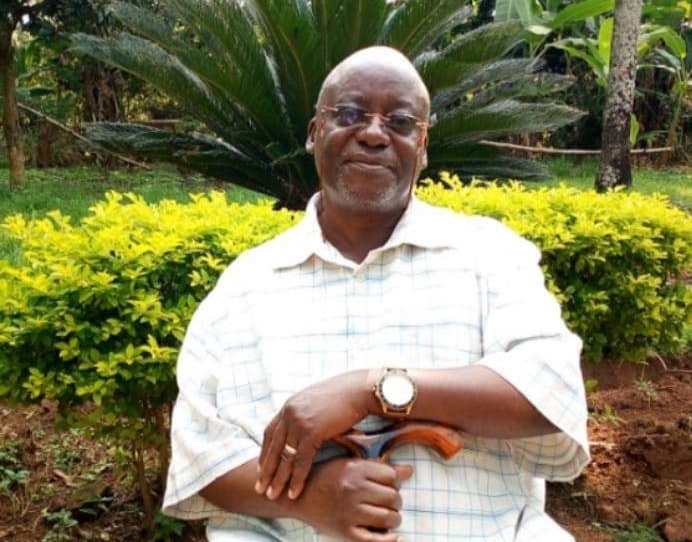A high-level conference held at the President’s Office Conference Room brought together over 500 stakeholders from government, security organs, religious bodies, labor agencies, international organisations, media to review Uganda’s achievements in combating terrorism, radicalism, extremism, human trafficking, and drug abuse.
Hon. Maj. Gen. (Rtd) Kahinda Otafiire, Minister of Internal Affairs, commended attendees for rejecting harmful stereotypes about Muslims and stressed unity and freedom of worship. “Let’s embrace freedom of worship and shun acts of terrorism, extremism, and radicalism,” he stated. He further urged security forces to exercise discretion, advising, “Let people be according to their religious and political beliefs. Only go after those who break the law and cause disability in society.” He reminded young officers that responsibility matters more than rank and underscored that “The stability of the ruling party is the stability of the country.”
Ambassador Dr. Mohamed Ahmed Kisuule, Senior Presidential Advisor for Middle East Affairs, attributed success to integrated military, political, social, and economic measures. “Since the launch of the Intra-agency taskforce, we have built strong relationships with local communities and sensitized youth,” he said. Proactive prevention addresses underlying causes of radicalization such as social exclusion, governance deficits, and human rights abuses, involving communities, religious leaders, women, and youth.
Ambassador Abbey Walusimbi, Senior Diaspora Affairs Advisor, reported improved vigilance and cooperation among agencies leading to stronger border control. He called the Uganda Bureau of Hajj Affairs “an effective shield for Ugandans abroad,” spotlighting its close work with ministries and Saudi counterparts. “The conference dispelled dangerous misconceptions that unfairly linked Islam to trafficking,” Walusimbi stressed.
He revealed that “We led a total of 742 distressed Ugandan migrant workers and managed to safely rescue and return close to 40% of this total with great hope of rescuing more with time.” He remarked, “These outcomes are not just statistics. They represent lives saved, dignity restored, and Uganda’s image elevated.” He concluded urging vigilance and cooperation to ensure, “no Ugandan becomes a victim of trafficking,” and that the nation “continues to be known for dignity, resilience, and peace.”
Brig. Gen. Ceasar of the National Counter Terrorism Centre added, “Drawing from prior experiences in counterterrorism, the fight against terrorism requires unity of purpose.” He praised Ambassador Kisuule’s mobilization efforts and reaffirmed his dedication to service.
ASP Wassa David Ssengendo highlighted that strengthened ties between security organs and the Muslim community have reduced misconceptions.
Kenneth Oloka from the Federation of All Migrant Workers Association and Kyeyo Initiative Uganda appreciated government and presidential office initiatives in rescuing distressed migrants and bridging cooperation gaps. He called for intensified security at porous borders and airports, alongside job and wealth creation to deter trafficking.
The conference identified challenges including poverty, unemployment, gender-based violence, corruption, compromised security at entry points, removal of the external labor desk, and poor inter-agency cooperation as enabling trafficking.
Recommendations from key stakeholders like the Uganda Bureau of Hajj Affairs, labor recruitment agencies, migrant associations, and others encompassed intensified sensitization campaigns, job creation, policy reforms, reinstatement of the labor desk, strengthened investigations and prosecutions, and establishment of a dedicated anti-trafficking fund.
The conference concluded with an urgent appeal for aid in repatriating over 700 stranded Ugandans from India, Egypt, Syria, Iraq, Jordan, Saudi Arabia, and the UAE, as well as for effective reintegration support.
Do you have a story in your community or an opinion to share with us: Email us at editorial@watchdoguganda.com



